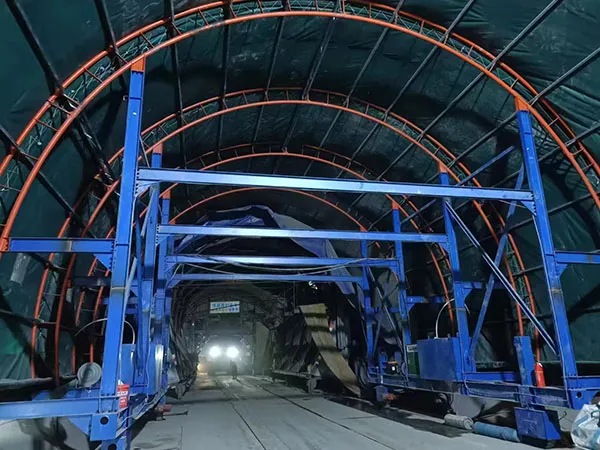What are the methods to control the quality of tunnel lining?
Tunnel lining plays a critical role in ensuring the structural stability, safety, and durability of underground construction projects. As the permanent support structure, the lining must withstand ground pressure, water ingress, and long-term environmental influences while maintaining serviceability throughout the tunnel’s lifespan. To achieve these objectives, stringent quality control measures are essential during design, material selection,manufacturing,and construction phases.
Quality control in tunnel lining involves systematic monitoring and inspection to verify that materials, dimensions, installation methods, and finished structures meet specified standards and project requirements. This process not only helps to prevent defects such as cracks,misalignment, and water leakage but also enhances the tunnel’s operational reliability and reduces future maintenance costs.
Tunnel Lining Quality Control Method

I. Pre-Construction Phase (Design & Planning):
Detailed Geotechnical Investigations: Thorough understanding of ground conditions (rock type, soil, water table, faults) is paramount. This informs the design of the lining, material selection, and construction methods.
Appropriate Lining Design: The design must consider anticipated loads (ground pressure, water pressure, seismic activity), service life, and environmental factors.
This includes selecting the correct lining thickness, reinforcement, and material (e.g., sprayed concrete, precast segments, cast-in-place concrete).
Material Specification: Clearly define the required properties for all materials, including concrete strength, durability, workability, aggregate quality, admixtures, and reinforcement steel.
Quality Management Plan (QMP): Develop a comprehensive plan outlining all quality control (QC) and quality assurance (QA) procedures, responsibilities, inspection points, and documentation requirements.
II. Construction Phase (Execution & Monitoring):
A. Material Quality Control:
Aggregates:
Sampling and Testing: Regular testing for gradation, soundness, cleanliness (silt/clay content), organic impurities, and moisture content.
Storage: Proper storage to prevent contamination and segregation.
Cement:
Source Approval: Ensure cement comes from approved manufacturers.
Testing: Check for fineness, setting time, soundness, and compressive strength.
Storage: Protect from moisture.
Admixtures:
Verification: Ensure type and dosage are as per design.
Testing: Confirm effectiveness and compatibility with other materials.
Reinforcement Steel:
Mill Certificates: Verify grade, dimensions, and mechanical properties.
Inspection: Check for rust, damage, correct bending, and placement.
…
More detailed information on tunnel lining quality control methods can be found at: https://www.gf-bridge-tunnel.com/a/blog/tunnel-lining-quality-control-method.html


